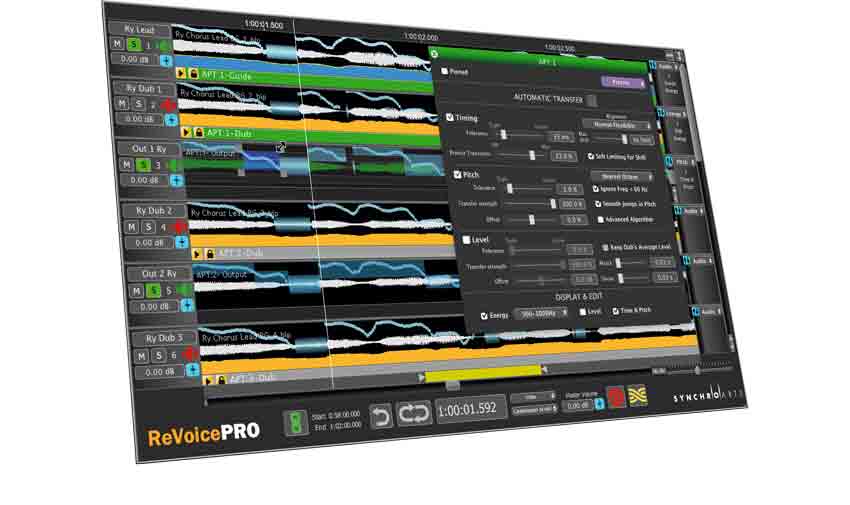MusicRadar Verdict
For those who work with layered multitrack audio, Revoice Pro can be a real timesaver.
Pros
- +
(Almost) instant multi-tracked vocals. Highly tweakable processing. Flexible 'doubling' creation.
Cons
- -
Multiple track workflow could be improved. Would benefit from better DAW integration.
MusicRadar's got your back
Synchro Arts lives a somewhat double audio life, with one foot firmly in the world of film and the other in music. Many readers may be familiar with its VocAlign software, which is a favourite of producers when needing to tidy up the timing of multi-tracked vocals, but may not realise its TV and film origins.
"The basic technique involves taking two pieces of audio, analysing both, and applying the timing of one to the other"
Developed as a means of automatically aligning dialogue during the ADR (Additional Dialogue Recording) process, it became clear this could work with music too. The basic technique involves taking two pieces of audio - the 'guide' and the 'dub' - analysing both, and applying the timing of one to the other. In the case of stacked vocals, you might have one guide and lots of dubs.
This is the starting point for Revoice Pro which, as it reaches version 2.2, introduces Windows compatibility and some streamlining tweaks. What makes Revoice Pro 2 so interesting is that it brings pitch and level correction into the mix, all as part of a single process.
We have to admit that it is a little confusing initially when trying to decide which is the best way to work with the audio transfer and playback element of RVP. Although RVP isn't a plug-in per-se it does use a so-called link plug-in to transfer audio from your DAW into the main standalone processing software, and with this latest update there is the ability to stream the output of the standalone processing software back into some DAWs via an insert plug-in.
In fact, when testing with Cubase we found it was quickest to drag and drop audio between the two applications.
Process control
Once inside RVP each audio element that requires manipulation must be assigned a 'process'. This is where you specify what should be changed - Timing, Pitch and Level. In fact there are many parameters that sit within each of these sections that allow you to decide how tightly the processed versions should match the original.
If the original audio varies too much then the process doesn't always work perfectly. There are some advanced features that can help with this. RVP2 is quicker to work with than previous versions, but we feel that more could be done to speed up the complete process when working with many audio tracks.
If you don't already have double-tracked elements, RVP can create them, and this worked well for the most part. In fact creating fake stereo double-tracks from a mono vocal is very simple. Unlike Melodyne, RVP needs to have a guide track against which to work. This means that the processing isn't a one-click fix to all your audio correction needs - you must have at least one good take. But this isn't to diminish the power of this excellent software. In reality £449 may put it out of reach for many, though Synchro Arts do offer a significant 50% discount to education and a three-month rental.
Revoice Pro may not be perfect but it is very powerful and can be a true timesaver when working with vocals in particular. How did we live without it?
“We were arguing a lot and we were miserable”: How Green Day exceeded expectations with their most ambitious song
"There’s plenty for us guitarists to learn – and ‘less is more’ is the overriding lesson": how to play like George Harrison on The Beatles' Abbey Road
“They didn’t like Prince’s bikini underwear”: Prince’s support sets for the The Rolling Stones in 1981 are remembered as disastrous, but guitarist Dez Dickerson says that the the crowd reaction wasn’t as bad as people think










